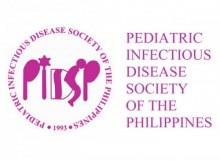Journal 2020 Vol.21 No.1
Effectiveness and Adverse Effects of Intravenous Colistin In Neonates with Multi-Drug Resistant Gram-Negative Bacterial Infections
Michael N. Crisostomo, M.D., Cecilia Maramba-Lazarte, M.D.
Abstract
Background: The global burden of multi-drug resistant gram-negative bacterial (MDR-GNB) infections has been increasing.
Neonates are at a particularly high-risk and there is limited treatment option. The use of colistin has been re-introduced for this population. However, data on its use in neonates is scarce.
Objectives: To determine the effectiveness and adverse effects of intravenous colistin in neonates with multidrug-resistant gram-negative infections.
Design: This is a retrospective cohort study of the clinical profile and outcome of neonates with MDR-GNB infections given colistin for a minimum of 3 days conducted from April 2015 to April 2019.
Results: A total of 175 pediatric patients had MDR-GNB infections. 75 (43%) neonates met the inclusion criteri a and received intravenous colistin. Of the 75 patients with MDRGNB infections- that included sepsis, pneumonia, urinary tract infection and abscess, 37 (49.3%) were alive and 38 (50.7%) patients died. Nephrotoxicity was seen in 4% if patients and 2.6% patients had hypersensitivity reaction. MDROs isolated were Acinetobacter baumanii, Klebsiella pneumoniae and Pseudomonas aeruginosa.
Conclusions: Intravenous colistin is 50% effective and is relatively safe to use in neonates.
Keywords: colistin, MDR-GNB, neonates
https://doi.org/10.56964/pidspj20202101004
Fullscreen Mode
Journal 2020 Vol.21 No.1 Original Articles 2pidsp@uplink.com.ph2025-06-14T04:31:48+00:00
